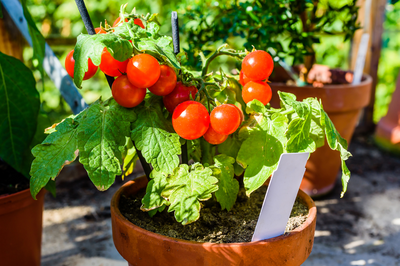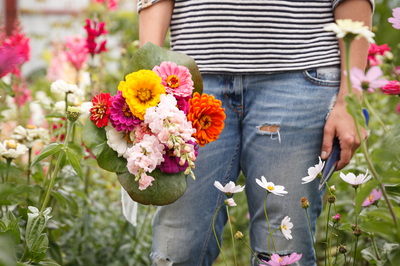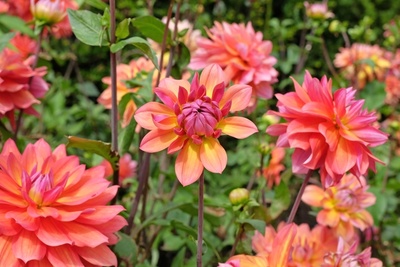
Taking softwood cuttings is easy to do, and it’s a great way to make new plants at minimal costs. Softwood cuttings are sections cut from the new young growth of plants and grown into new plants. They should be taken from mid-spring to early summer and potted up by mid-summer at the latest, to give the new plants time to develop roots before winter.
Softwood cuttings: plants to try
Many tender perennials multiply from softwood cuttings. These include pelargoniums, petunias, verbena, argyranthemums and osteospermums. You can also take softwood cuttings from several deciduous shrubs, including lavender, forsythia, fuchsias, hydrangeas, lavatera and buddleja (butterfly bush).
You will need:
-
Sharp secateurs
-
A dibber (or a pencil)
-
Hormone rooting powder
-
Polythene bag to hold cuttings before potting
-
9cm pots filled with cuttings compost such as John Innes No. 1, or a peat-free compost with 30% sharp sand added to improve drainage
-
A heated propagator or clear polythene bags to cover cuttings
-
Labels
How to take softwood cuttings
-
Fill your 9cm pots with cuttings compost, so they are ready for your cuttings.
-
Take your cuttings early in the day, when the plants are full of water. Cuttings wilt quickly, so put them in a plastic bag as you cut them to stop them drying out, and pot them up as soon as possible.
-
Select your cutting material from strong new side shoots between 5-10cm (2-4in) long, cutting just below a leaf joint. Don’t use flowering shoots for cuttings.
-
Remove all the leaves from the lower half of the cutting and pinch out the growing tip at the top.
-
Dip the lower end of the cutting in hormone rooting powder.
-
Water the pots so that the compost is moist. Then use a dibber to make holes in the compost and insert each cutting into a hole, with the lowest pair of leaves just above the surface of the compost. Firm the compost around the cuttings.
-
Label the pots and place them in a propagator case with a bottom heat of 18-24ºC (64-75ºF). If you don’t have a propagator, cover each bowl with a clear plastic bag and place it somewhere warm, in bright but indirect light. Open the propagator vents daily or remove the plastic containers for 10 minutes twice a week for ventilation.
-
Keep the compost moist while the cuttings are rooting. This can take up to 6-10 weeks. Check for signs of roots appearing through pot drainage holes, or pull very gently on cuttings to test whether they have rooted.
-
Once the cuttings have rooted, harden them off by placing the pots outside during the day and moving them back in at night. Do this for two weeks, then pot up the cuttings into individual containers filled with multipurpose compost and grow on.
Whether you’re taking cuttings, growing seeds or planting flowers, we have everything you need to help you make the garden of your dreams.




